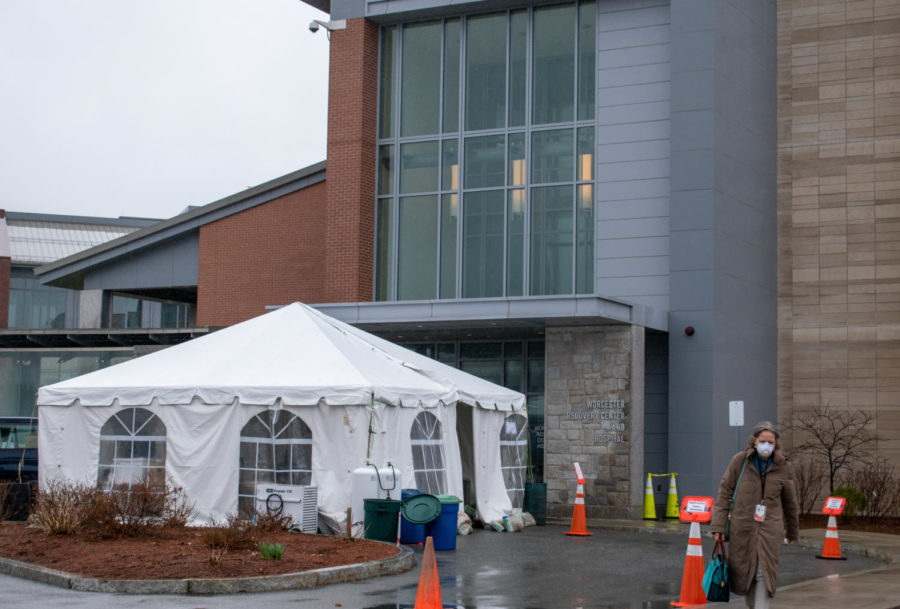A timeline for coronavirus vaccine eligibility is finally available in Massachusetts. While it provides the transparency many of us have yearned for, it also incites new and greater anxiety about the rollout. To deal with these feelings, we all need to accept that the timeline is unfair.
All along the vaccine rollout has been unfair. The unpredictability of the coronavirus paired with the broad nature of eligibility criteria make it inherently so.
During the first month of vaccine distribution, healthcare professionals were among the few categories of people eligible for a shot. While this made sense based on their high levels of exposure, medical workers are also more likely to be white. This meant that 60 percent of those vaccinated between Dec. 14 and Jan. 14 were white, even though people of color are more likely to get the coronavirus and to be hospitalized or die from it.
From the start, some states, such as Florida, made their own rules for eligibility. This meant that older Americans were prioritized in certain states ahead of those in others.
With each new phase the public has been analyzing who gets vaccinated versus who should get vaccinated. Who qualifies as a healthcare worker? Who qualifies as a teacher? Why should teachers come before cashiers when society needs both to function, and the latter performs a task that is entirely impossible to do remotely?
The government is relying on broad designations to curb hospitalization and death, but the categorical nature of vaccine distribution precludes fairness. There is no way to go through an entire state of people and individually rank each one in terms of risk.
Still, the next few months are sure to be filled with feelings of vaccine anxiety for just about everybody. One way to face the difficult emotions surrounding vaccine distribution is to name them. Two terms have emerged in recent months to help people pinpoint what they are feeling when they see another vaccine selfie or when they finally get the chance to bare their own arm for a jab but find themselves asking ‘do I deserve this?’
Vaccine envy is a phenomenon that Robert Shmerling, a doctor and editor at Harvard Health Publishing, defined in a blog post as “that feeling of jealousy, disappointment, or resentment you feel when someone else gets the vaccine for COVID-19 — and you can’t.” The feeling is also applicable to those frustrated over their loved ones being ineligible for vaccination.
Vaccine guilt is just the opposite: feeling badly about getting the vaccine ahead of others who might be more deserving.
As we move into later phases of vaccine rollout and criteria becomes more ambiguous, these feelings of envy and guilt will likely intensify. A teenager who volunteers in a school or after-school program will be eligible in Massachusetts before a 60 year old cashier who relies on the job to support themselves. Discrepancies such as these are kindling for anger and frustration.
Distribution inequities mean that our friends, family and strangers will get vaccinated ahead of us and those we believe should be first. They also mean that we are vaccinated ahead of other equally or more at-risk people. Someone has to come first and someone has to come second.
To get through the next few months, people must do everything possible to maintain relationships with friends and family. This means a herculean effort to practice empathy and acceptance.
Watching others get vaccinated ahead of us and getting vaccinated ahead of others, for whatever reasons, will cause anger, jealousy and even fear. Lashing out, criticizing or shaming others, however good it may feel in the moment, will not help.
Instead, take solace in the fact that negative feelings are legitimate, while also recognizing that there is no better way to divvy things up.
Looking at the big picture can also help. Though Massachusetts got a slow start on vaccination efforts, it is now one of only 16 states that has fully vaccinated at least 14 percent of its population and one of 14 that has administered at least one dose to 25 percent or more of residents. It also has a higher than average rate of efficiency administering the vaccines it is allocated, with 85 percent of doses already in arms.
The United States as a whole has the sixth highest percentage of fully-vaccinated people of any country, tied with Serbia. So, while those at the back of the line in Massachusetts may feel left behind, citizens of this state and country are privileged.
While it is difficult, we must celebrate each vaccination as a baby step toward greater freedom, not for the individual who feels the needle, but for the society that accepts them with open arms.
Lily Robinson can be reached at [email protected] and followed on Twitter @lilyerobin.



















